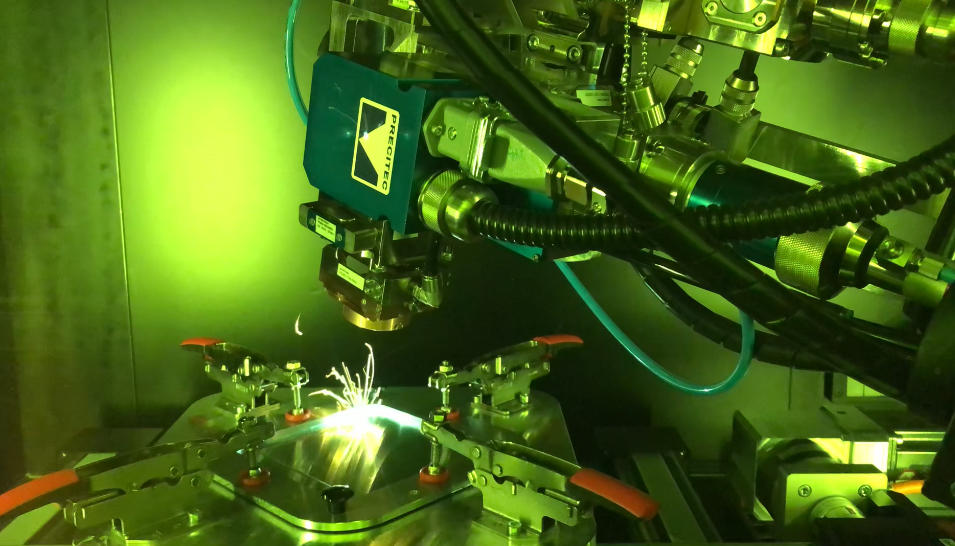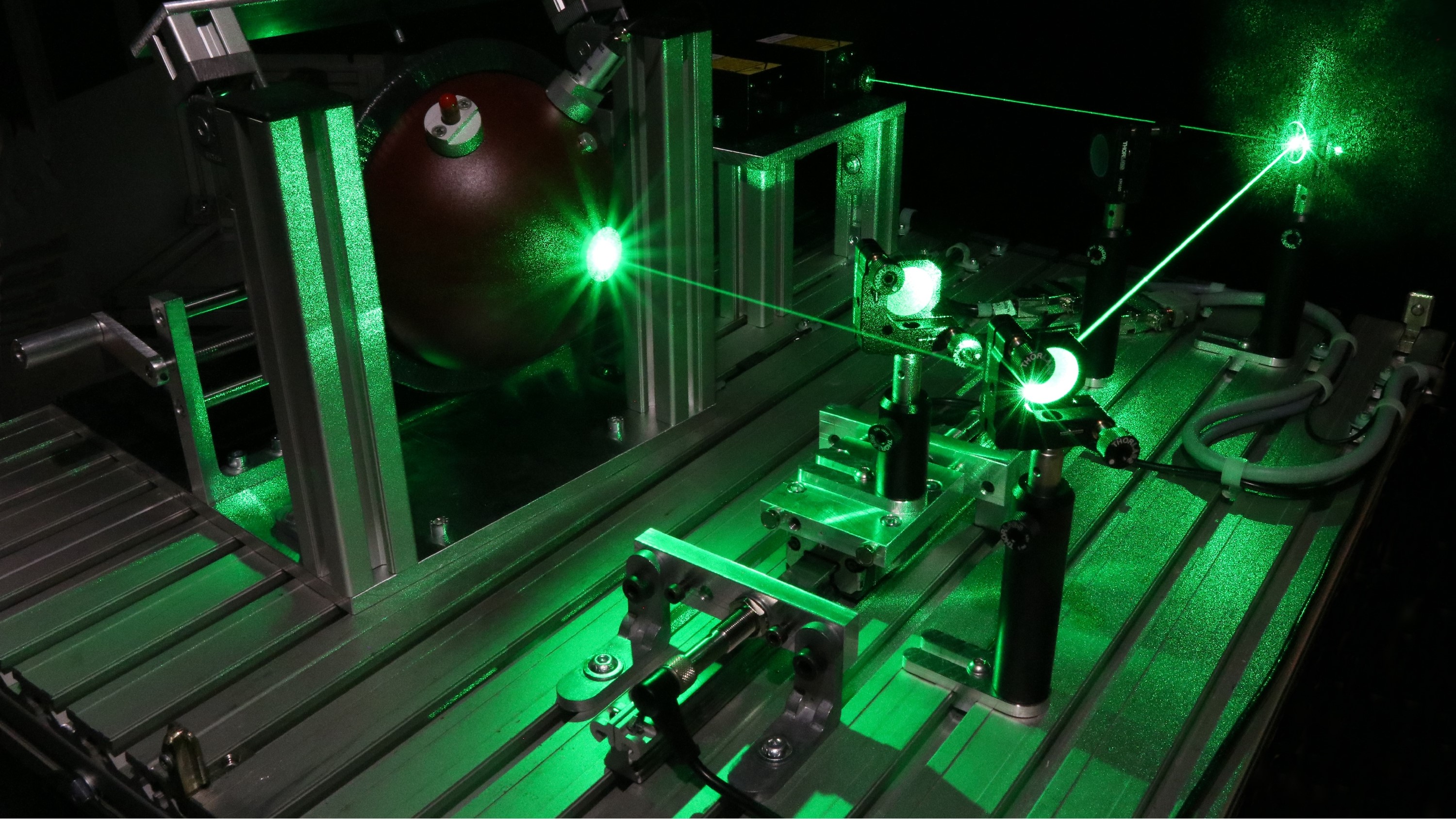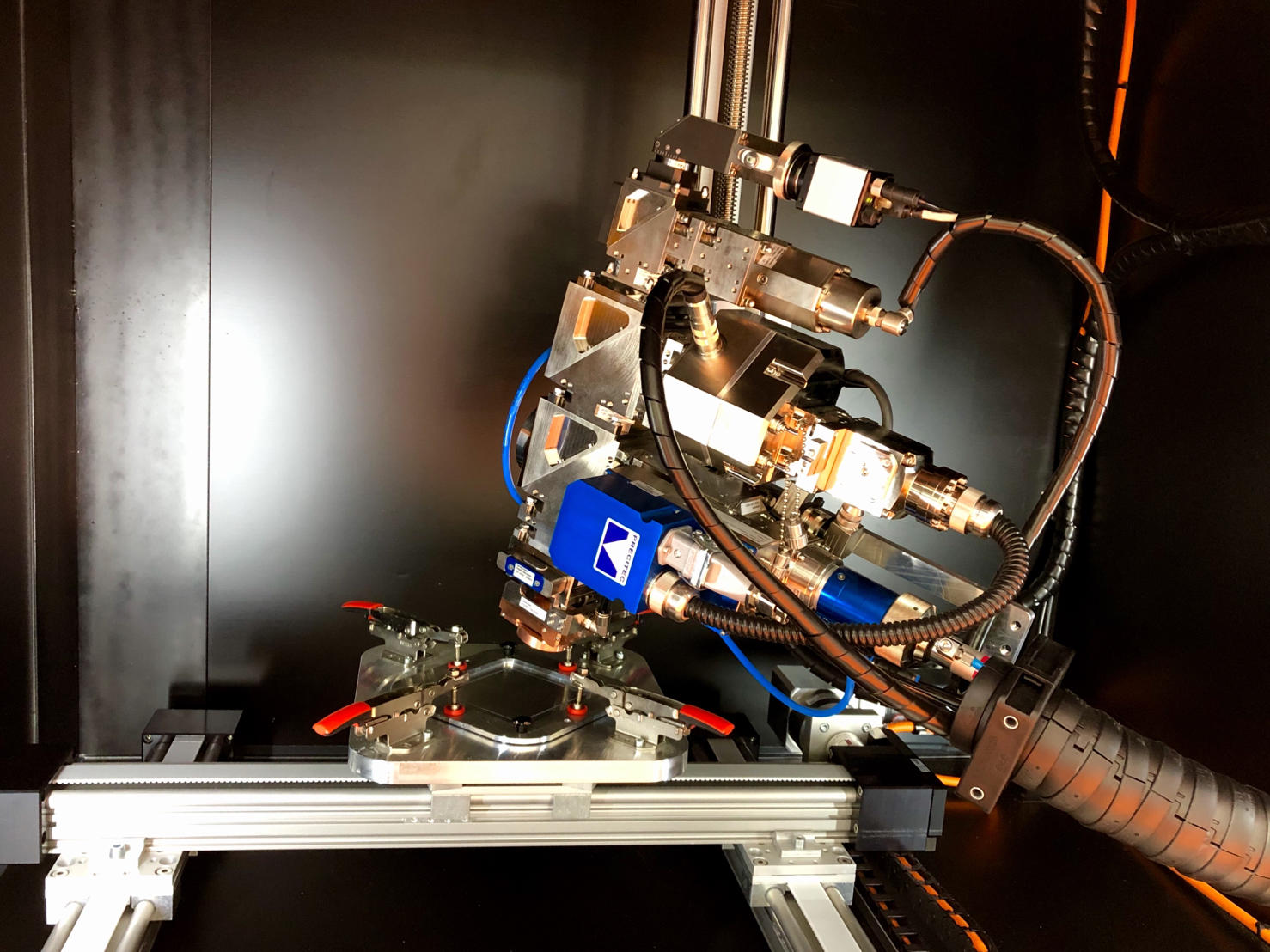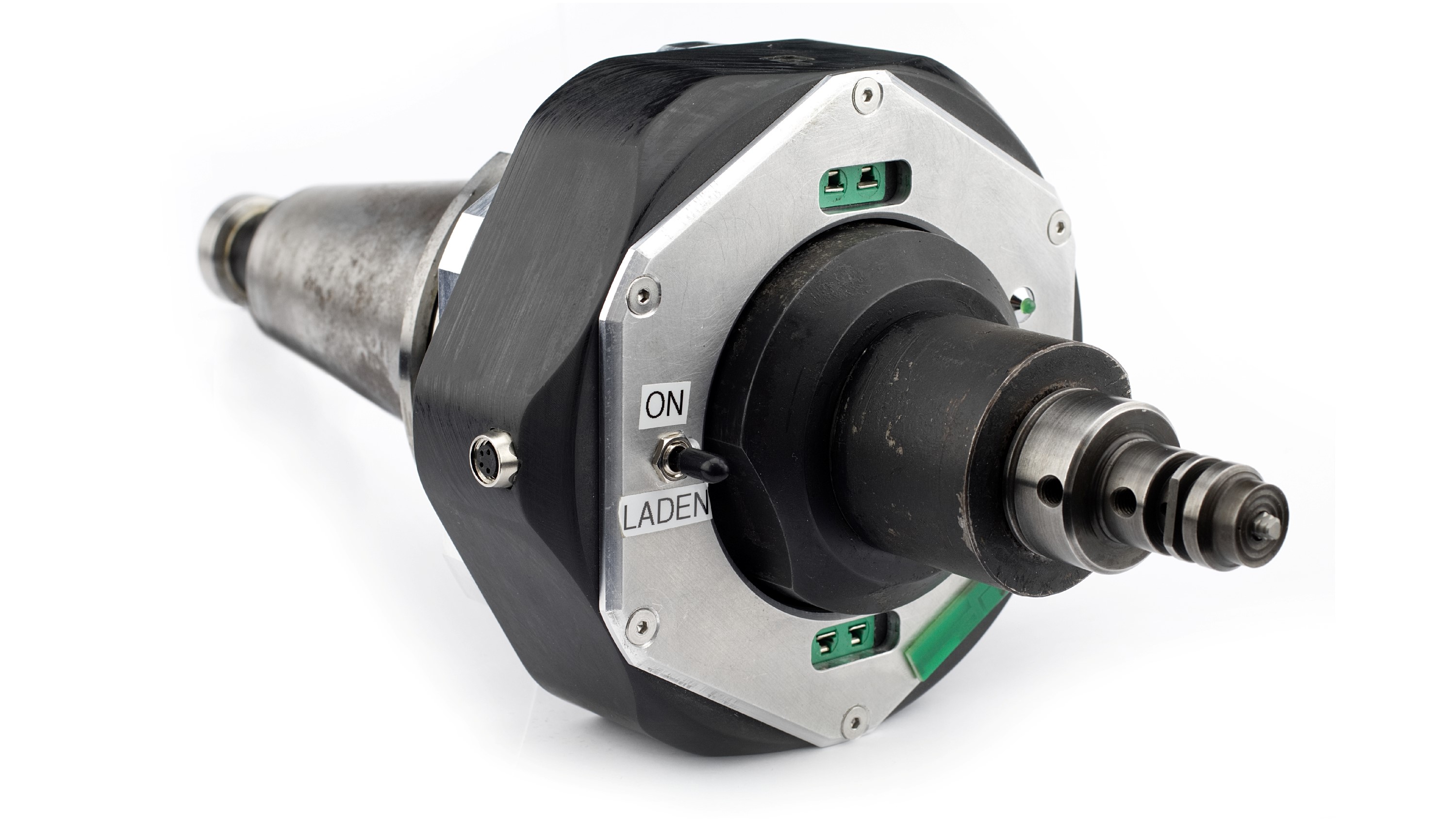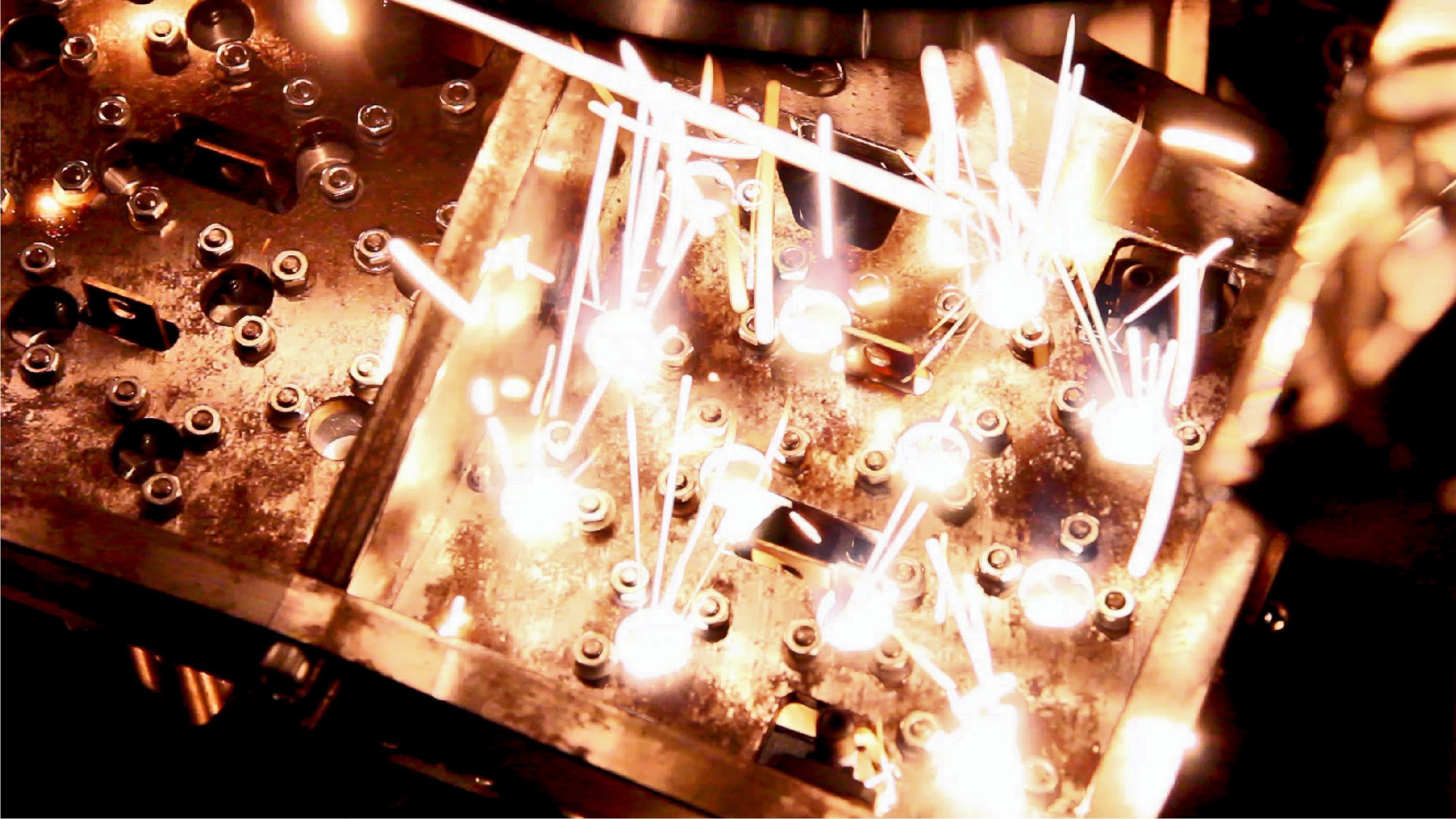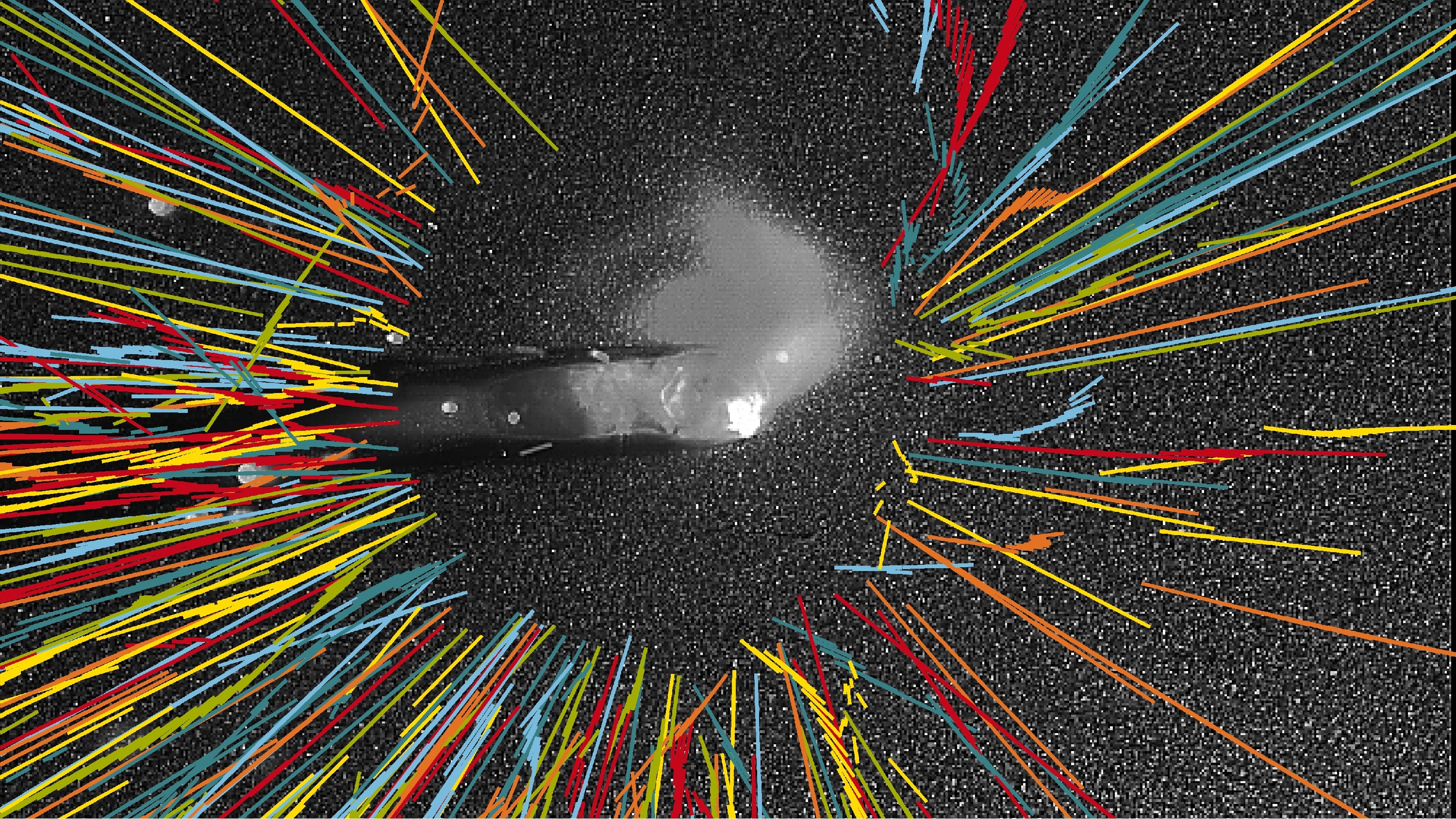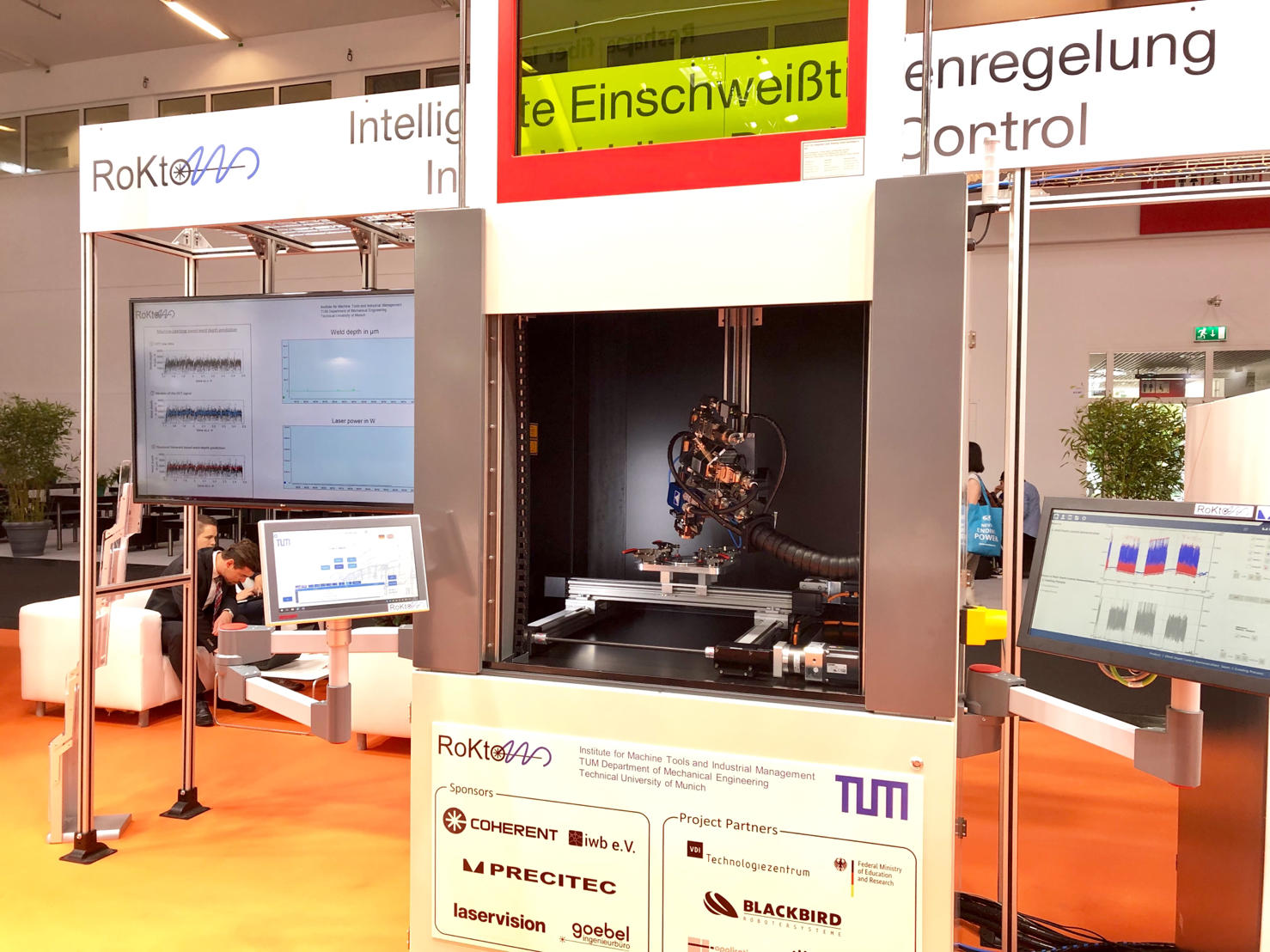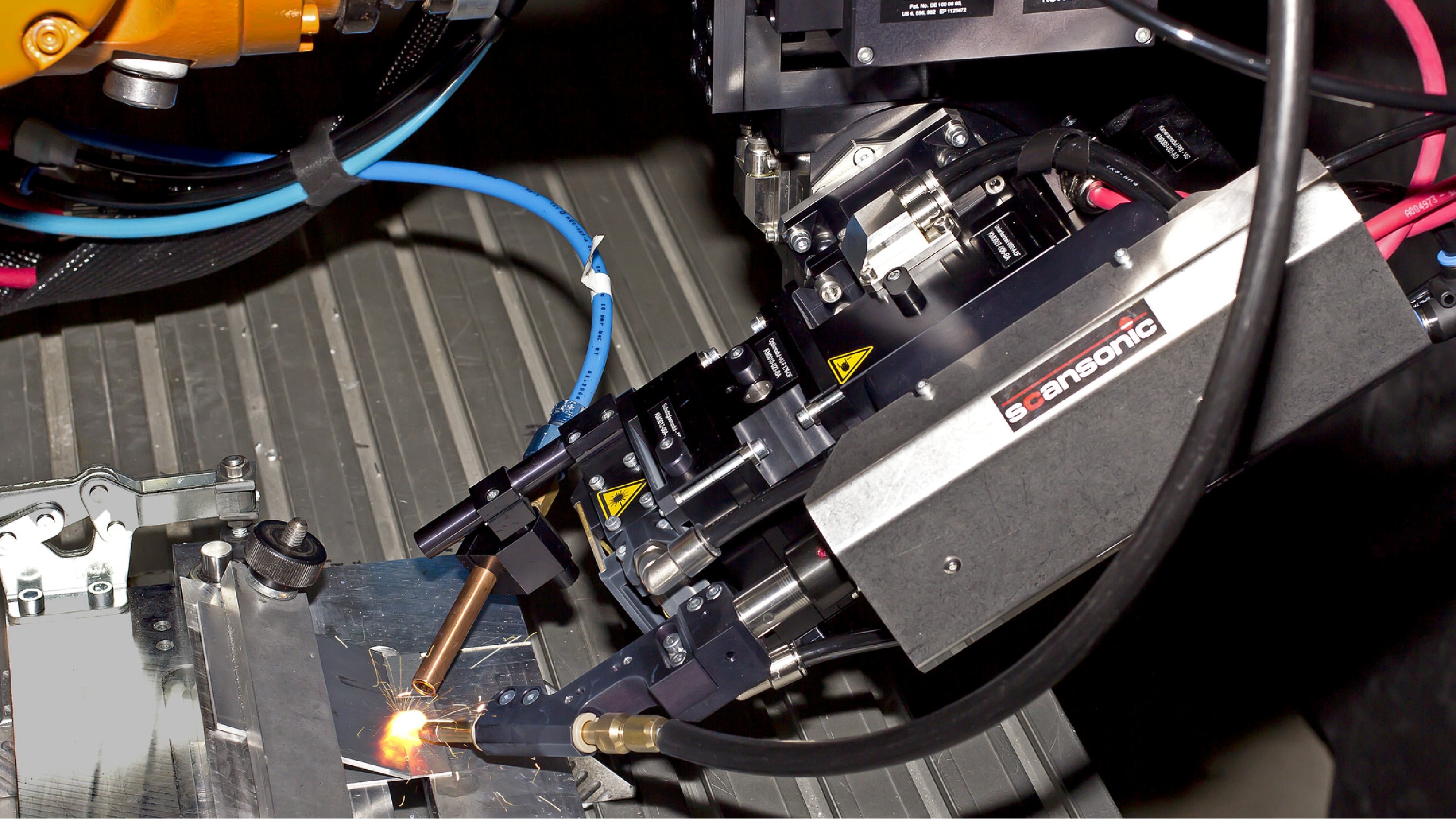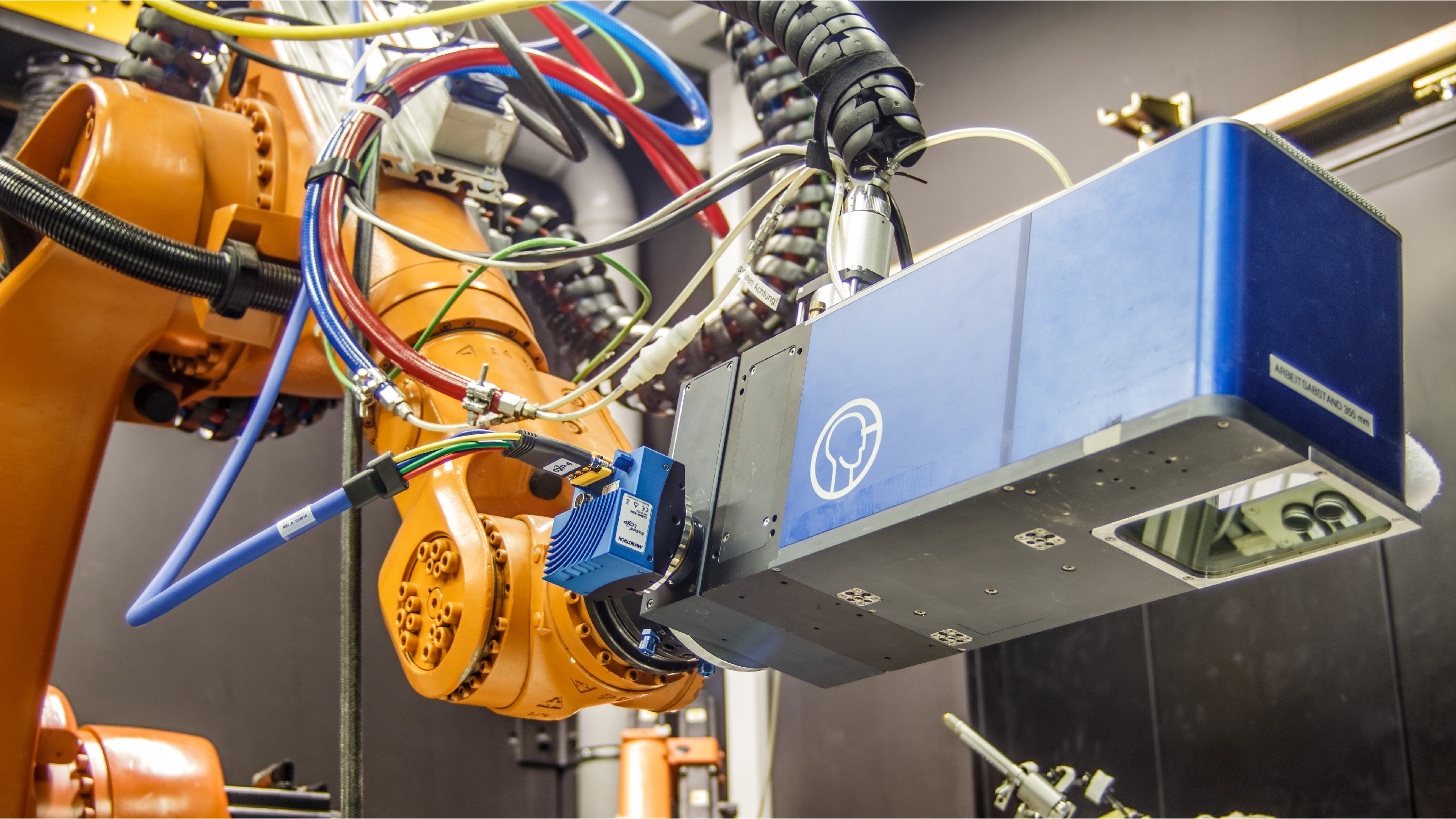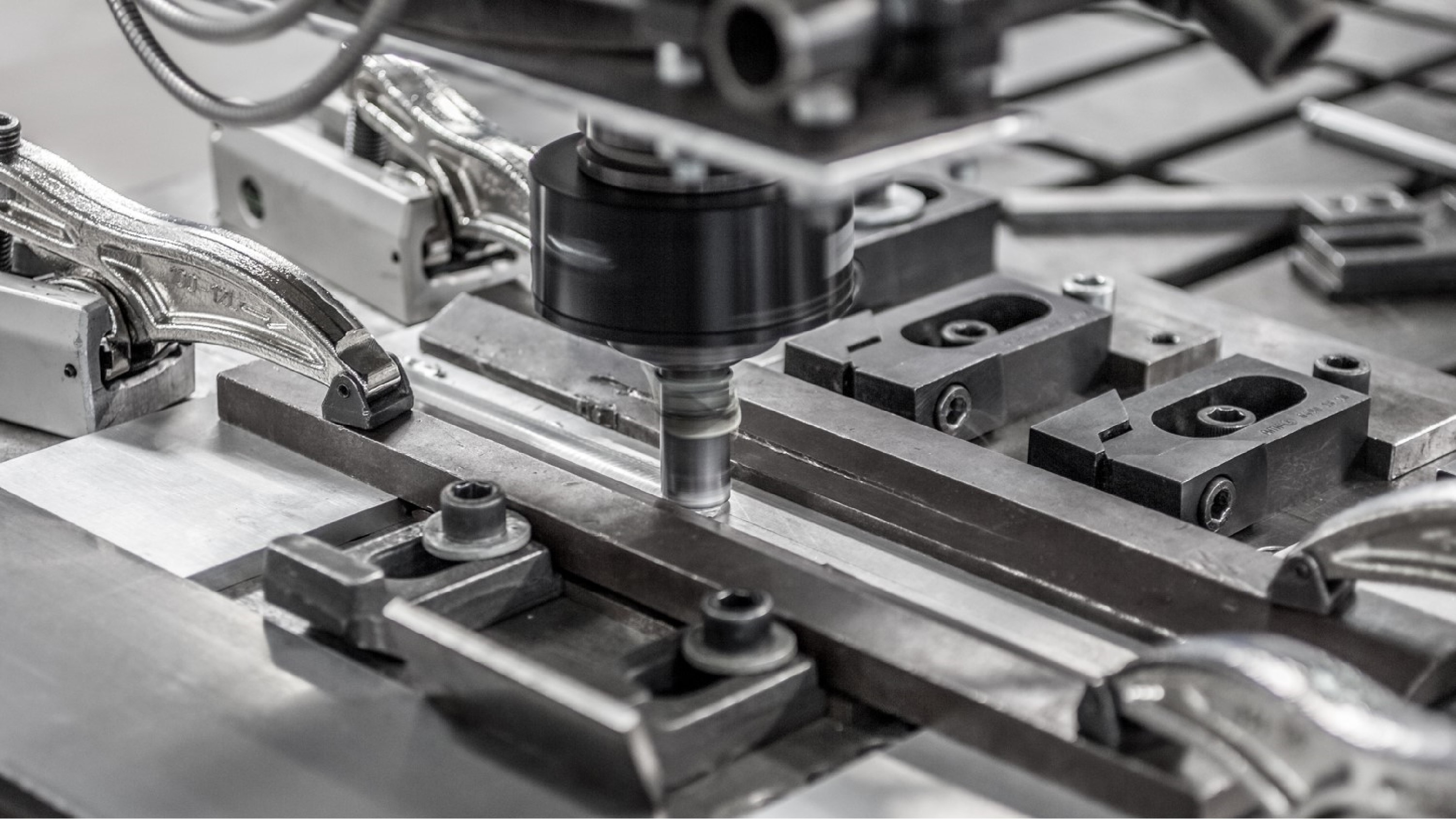Research Field Intelligent Joining System Technology
The research field Intelligent Joining System Technology was founded to bundle competences in the field of Artificial Intelligence across different topics and disciplines. With a focus on production applications in the field of joining technology and additive manufacturing, the research field focuses on the investigation of methods of machine learning in order to utilize the potential of progressive digitization for production technology applications.
Innovative leap for joining system technology
The overall goal of the research field is the realization of an intelligent joining system technology, which is characterized by the independent acquisition of suitable process variables, automated and robust recognition of correlations between process data and phenomena and the intelligent derivation of process interventions and recommendations for action.
Artificial intelligence as a central component for the processing and analysis of process data
The research focuses on methods of statistics and machine learning for the recognition of patterns and connections between the recorded data and process variables and effects. Based on these findings, measures are implemented to improve process results, process robustness and quality assurance.
The core competences of the research field:
- Sensor and measurement concepts for data acquisition
To record meaningful process data, the selection and qualification of suitable measurement and sensor concepts is in the foreground in order to make the data usable in the most target-oriented way possible in the sense of targeted control and monitoring of process quality. Measurement data as well as data from digital images of the physical systems are used.
- Machine learning for robust processing of (large) data volumes
The analysis of the recorded data is the central part of the research work, with the aim of an automated and robust evaluation. In addition to statistical methods, machine learning methods are used to identify correlations and correlate patterns in the measurement data with process characteristics. In addition to data preparation, the analysis methodology and the validation of the predictions are the focus of the investigations in order to qualify Artificial Intelligence for use in the production environment.
- Control and regulation of process and/or system technology
Strategies for the control of plants and processes as well as for the automated adaptation of process control are developed in order to be able to use the knowledge gained from data evaluation. Expert systems for increasing process quality and stability are implemented with the aim of automatically adapting the system technology to any joining tasks.
The approach covering the entire process chain makes it easier and more efficient to set up the process for complex joining tasks and guarantees the desired process result. Networking along the entire process chain as well as across different processes makes expert systems for production engineering applications possible. Complex interdependencies can be recognized and used for future processes.
Projects
Current research projects
MoBaReg - Development of a process torque-based temperature control for friction stir welding
REGULUS - Resource-efficient production of large-volume aircraft structural components
ReVeBa - Computer-aided distortion minimization during laser welding of complex component structures
Selected Publications
| 2020 | Numerical weld pool simulation for the accuracy improvement of inline weld depth measurement based on optical coherence tomography. Journal of Laser Applications 32 (2), 2020, 022036. (Details) |
| Investigation of the influences of the process parameters on the weld depth in laser beam welding of AA6082 using machine learning methods. Procedia CIRP 94, 2020, 702-707. (Details) | |
| Correlation analysis between the beam propagation and the vapor capillary geometry by machine learning. Procedia CIRP 94, 2020, 742-747. (Details) | |
| Real-time prediction of quality characteristics in laser beam welding using optical coherence tomography and machine learning. Journal of Laser Applications 32 (2), 2020, 022046. (Details) | |
| 2019 | Eine Methode zur Auslegung laserstrahlgeschweißter elektrischer Verbindungen mittels Künstlicher Intelligenz. METALL 73 (11), 2019, 286-288 (Details) |
| Distortion minimization of laser beam welded components by the use of finite element simulation and Artificial Intelligence. CIRP Journal of Manufacturing Science and Technology 27, 2019, 11-20 (Details) | |
| Numerical Weld Pool Simulation for the Accuracy Improvement of Inline Weld Depth Measurement Based on Optical Coherence Tomography. In: ICALEO Conference Proceedings 2019. (Details) | |
| Real-time Prediction of Quality Characteristics Based on Inline Process Data Using Machine Learning. In: ICALEO Conference Proceedings 2019. (Details) | |
| Kreuzkorrelation von Prozessparametern und der Einschweißtiefe beim Laserstrahlschweißen von Aluminiumlegierungen mittels Methoden des Maschinellen Lernens. In: DVS Congress 2019, 13-21. (Details) | |
| Real-time Prediction of Quality Characteristics in Laser Beam Welding Using Optical Coherence Tomography and Machine Learning. In: ICALEO Conference Proceedings 2019. (Details) | |
| Automated visual inspection of friction stir welds: a deep learning approach. Multimodal Sensing: Technologies and Applications, SPIE Optical Metrology 1105909 (2019). (Details) | |
| A Genetic Algorithm for the Correlation of the Keyhole and the Melt Pool Depth in Laser Beam Welding of AA6082. Wissenschaftliche Gesellschaft für Lasertechnik e.V. (WLT): Proceedings of the Lasers in Manufacturing Conference (LiM) 2019. (Details) | |
| Holistic sensor concept for process control and quality assurance in laser beam welding based on Optical Coherence Tomography. Wissenschaftliche Gesellschaft für Lasertechnik e.V. (WLT): Proceedings of the Lasers in Manufacturing Conference (LiM) 2019. (Details) | |
| Inline weld depth measurement for high brilliance laser beam sources using optical coherence tomography. Journal of Laser Applications 31 (2), 2019, 022409. (Details) | |
| Ganzheitliches Qualitätssicherungskonzept für hochflexible Produktionsanlagen im Karosseriebau der Zukunft: Innovative Sensortechnologie und Datenauswertung mittels Künstlicher Intelligenz als Befähiger für hochflexible Fügetechnologien. Automobiltechnologie in Bayern + e-Car, 2019, 18-21. (Details) | |
| Holistic Quality Assurance System for Highly Flexible Production Systems in the Body Shop of the Future: Innovative Sensor Technology and Data Evaluation Using Artificial Intelligence as an Enabler for Highly Flexible Joining Technologies. Automotive Technology in Bavaria + e-Car, 2019, 18-21. (Details) | |
| Process control and quality assurance in remote laser beam welding by optical coherence tomography. Journal of Laser Applications 31 (2), 2019, 022408. (Details) | |
| 2018 | Highly flexible remote laser beam welding for the car body production of the future. In: Automotive Technology in Bavaria + e-Car, 2018. (Details) |
| 2017 | Flexibles Remote-Laserstrahlschweißen für den Karosseriebau (Newsletter iwb) |
| Intelligente Fügesystemtechnik - Forschungsfeld mit Zukunft (Newsletter iwb) |
Further Information
Do you have a special request or further questions regarding the current research projects listed below? Contact us and find out more about the possibilities for implementing intelligent joining system technology!
Inactive: The user is not active in TUMonline anymore!
